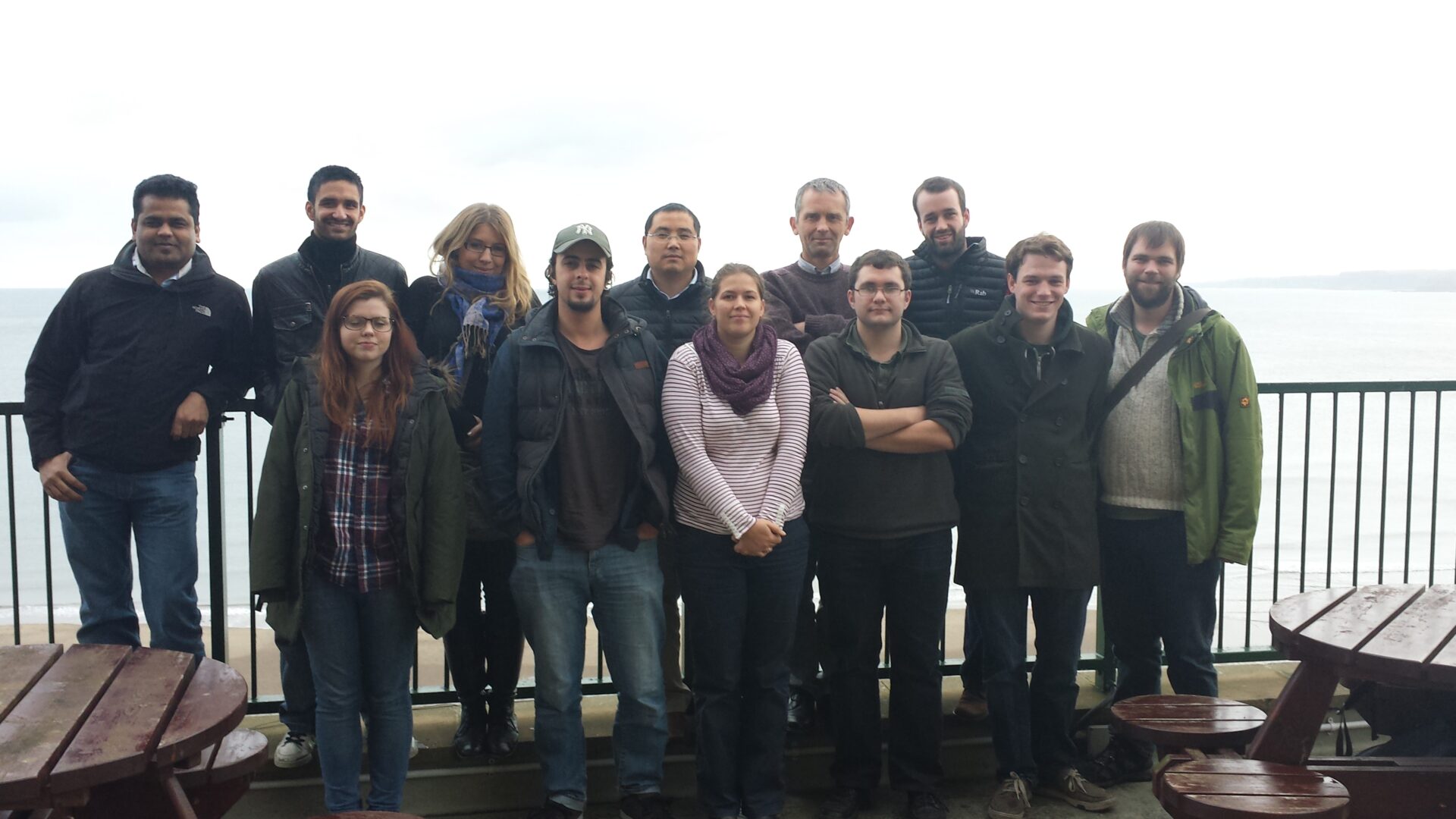Scarborough Away Day

We will always have Scarborough. That was the overwhelming feeling of all group members after an enjoyable and productive 2-day science retreat in Scarborough (November 20-21, 2013) . The aims of the retreat were to share latest research, discuss new ideas and plan new papers away from the distractions of daily work in Leeds.
We stayed on the seafront in the large and historic Grand Hotel. Despite some worryingly bad online reviews it turned out to be fine. Our expectations were realistic and well managed by Richard. In fact, we had an excellent meeting room, good bedrooms and ok food.
Everyone present gave a talk – see below for the detailed summary. Another highlight of the agenda was the football match on the beach (inspired by previous trips to Whitby). Tide times dictated that the match had to take place mid-afternoon on the first day. The PhD students beat the ‘staff’ – not surprisingly as they had Joey.
In the evening we carried on the discussions and interactions in a local bar. It was a quiet time year in the seaside town but, luckily, our night on the town coincided with the start of the 1st (Brisbane) Test in the Australia v England Ashes series. Sadly the cricket did not go well for England and most people decided that preparing for day 2 of the meeting (by sleeping) would be more useful.
The meeting finished at lunchtime on day 2 with everyone inspired and energised with new research aims. Definitely a thing that we want to repeat in the future.
List of presentations
- Martyn Chipperfield – Stratospheric water vapour
- Erin Dawkins – Three papers on mesospheric metals
- Sandip Dhomse - Stratospheric studies using 3D CTM and CCM
- Joe McNorton - Fracking
- Wuhu Feng - Mesospheric Studies Using the WACCM Model
- Ryan Hossaini - Halogen chemistry – key uncertainties
- Tim Keslake - Testing our understanding of atmospheric chemistry and aerosols using the ECMWF-MACC reanalysis
- Hannah Mantle – Global iodine modelling
- Sarah Monks - Current and Possible Future work
- Nigel Richards – Current satellite work
- Richard Pope - Current and future work on air quality
- Chris Wilson – What else can we do using inverse transport modelling?
